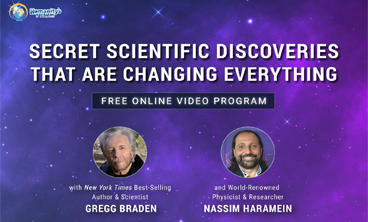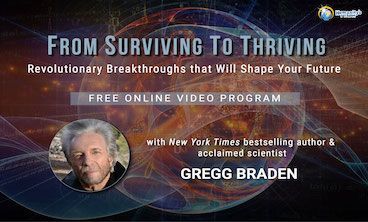
Why Don't More CEOs Consciously Lead?
The question of why more CEOs don't consciously lead is complex and multifaceted, but there are several potential reasons for this phenomenon. Many feel intense pressure from shareholders, investors, and boards of directors to deliver immediate financial results. This pressure can lead to a focus on short-term profits and performance metrics rather than long-term, sustainable, and conscious leadership practices.
Even now, when we are well into the 21st Century, traditional leadership models rule in many sectors. A large number of CEOs are groomed and trained in traditional leadership models that prioritize hierarchical decision-making, power dynamics, and a focus on bottom-line results. Shifting to a more conscious leadership approach requires a significant mindset and cultural change that some find challenging.
Still other CEOs are simply unaware of the concept of conscious leadership or the potential benefits it can bring to their organizations. Without exposure to the ideas and practices of conscious leadership, they may continue to operate within their existing frameworks. Some factors that play a role are conscious leadership often involves vulnerability, authenticity, and open communication. CEOs might be hesitant to show vulnerability or address personal and emotional aspects of leadership, fearing it could be perceived as weakness or negatively impact their authority.
The prevailing culture within an organization also plays a significant role in shaping CEO behavior. If the organization prioritizes short-term gains and a competitive atmosphere, it may discourage conscious leadership practices.
Additonally, leading consciously requires time for self-reflection, self-awareness, and building strong relationships with employees. CEOs may feel that their demanding schedules leave little time to invest in these aspects of leadership.
Ultimately, change can be difficult, especially when it involves a fundamental shift in leadership style. CEOs might encounter resistance from employees, stakeholders, or even themselves when attempting to adopt conscious leadership practices. Many perceive a trade-off between conscious leadership and achieving financial success. They might believe that prioritizing values, employee well-being, and social impact could hinder their ability to achieve desired business outcomes.
In this discussion, it's important to note that there are many CEOs who practice conscious leadership and have seen positive outcomes in terms of employee engagement, organizational culture, and sustainable business growth. As awareness and understanding of the benefits of conscious leadership continue to grow, more executives will choose to adopt these practices and lead in a mindful and holistic manner.
So…Should CEOs be More Conscious?
Yes, there are compelling reasons for CEOs to be more conscious in their leadership approach. Conscious leadership involves a heightened awareness of one's own values, emotions, and the impact of decisions on stakeholders, as well as a commitment to ethical and sustainable business practices. It requires a soulful approach to the enterprise environment and a willingness to bring conscious values to the board room.
Here are some of the top compelling reasons CEOs should consider adopting conscious leadership practices:
Improved Organizational Culture: Conscious leadership promotes a positive and inclusive organizational culture where employees feel valued, empowered, and motivated. This can lead to increased employee engagement, satisfaction, and retention.
Enhanced Employee Well-being: When CEOs prioritize employee well-being and work-life balance, it can contribute to a healthier and more productive workforce. Conscious leaders recognize the importance of creating a supportive environment that fosters both professional and personal growth.
Long-Term Sustainability: Conscious leaders focus on sustainable business practices that consider the long-term impact on the environment, society, and future generations. This approach can lead to more responsible resource management and reduced negative social and environmental consequences.
Stronger Stakeholder Relationships: Conscious leaders engage with a wide range of stakeholders, including customers, investors, suppliers, and local communities, in an open and transparent manner. Building strong relationships with stakeholders can lead to increased trust and loyalty.
Innovation and Creativity: Conscious leaders encourage a culture of innovation and creativity by valuing diverse perspectives and fostering an environment where employees feel comfortable expressing their ideas and taking calculated risks.
Resilience in Times of Crisis: A conscious leadership approach equips CEOs with the ability to navigate challenging situations and crises with resilience, adaptability, and empathy. This can help organizations weather storms more effectively and emerge stronger.
Ethical Decision-Making: Conscious leaders make ethical decisions that align with their values and principles. This can help prevent unethical behavior, scandals, and legal issues that can harm the reputation and bottom line of the company.
Positive Impact on Society: By considering the broader social impact of their business decisions, CEOs can contribute positively to the communities they operate in and help address societal challenges.
Attracting and Retaining Talent: Companies led by conscious CEOs are often more attractive to top talent who are seeking purpose-driven and socially responsible workplaces. This can give the organization a competitive advantage in recruiting and retaining skilled employees.
Personal Fulfillment: Adopting a conscious leadership approach can lead to personal fulfillment for CEOs, as they see the positive impact of their actions on employees, stakeholders, and society as a whole.
While conscious leadership requires a shift in mindset and practices, it has the potential to create a more sustainable, ethical, and successful business model. And beyond that it holds the promise of changing the future of the planet.
Humanity’s Future’s Conscious Business Change Agent masterclass will teach you business practices that support a flourishing planet and not just profit and growth.
Join us to discover how you can be part of a growing movement to shift the way we do business to a more loving, prosperous, healing, inclusive, sustainable, diverse and conscious way of living and working together in the world.
Share this post!
LATEST BLOGS




FREE PROGRAMS
LISTEN TO ONE OF OUR RECENT PODCASTS
Sign up now so you never miss a blog post, podcast,
or free event with Humanity's Team!




















